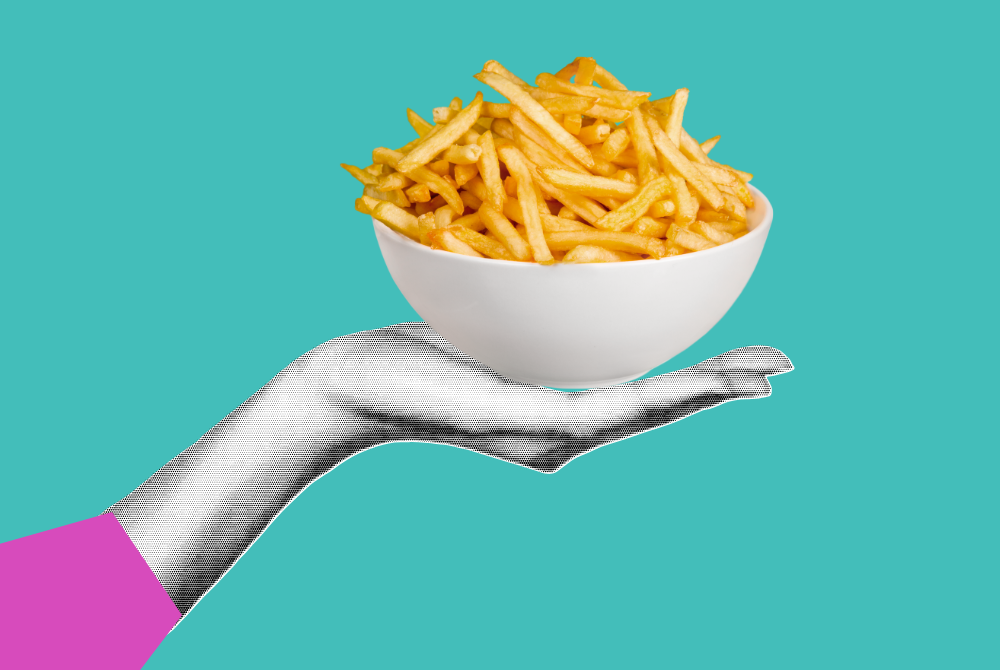Food for thought: How ultra-processed foods could be messing with your brain
While these foods may satisfy your taste buds, they often come with hidden consequences that affect your cognitive function.

WE all love the convenience of grabbing a quick snack or preparing an easy meal from a can or packet.
From chips to sugary cereals, processed foods are designed to be delicious, long-lasting, and easy to consume. However, have you ever stopped to wonder that these convenient choices could be silently sabotaging your brain health?
While these foods may satisfy your taste buds, they often come with hidden consequences that affect your cognitive function, memory, and overall mental well-being.
Let’s take a closer look at how ultra-processed foods impact your brain, and why it’s time to rethink your diet for a healthier, sharper mind.
Ultra-processed foods
Ultra-processed foods (UPF), which include items like sugary drinks, packaged snacks, and ready-to-eat meals, are more than just high in calories and low in nutrients. They’re chemically formulated with additives, preservatives, and artificial flavors, designed to make you crave more.
However, these same additives are now linked to cognitive decline, inflammation, and even mental health disorders. A meta-analysis published in Nutrients and reported by National Geographic linked high consumption of ultra-processed foods to a 44 per cent greater risk of depression and a 48 per cent higher risk of anxiety.
In one of these studies, risk rose from consuming just 33 percent of calories from ultra-processed food. Another study showed that consuming just 33 per cent of daily calories from these foods increased mental health risks.
It was reported that while the exact cause remains unclear, diets rich in salt, sugar, and fat contribute to chronic inflammation, increasing the risk of vascular dementia and affecting brain health.
Additionally, additives like artificial sweeteners and MSG may also disrupt brain chemistry, impacting mood-regulating chemicals like dopamine and serotonin. These factors collectively contribute to mental well-being issues.
It was also reporterd that individuals consuming a diet high in UPFs had a 28 per cent faster rate of cognitive decline compared to those who ate minimally processed foods. Scientists suggest that the lack of essential nutrients and the presence of harmful chemicals contribute to brain aging and shrinkage.
UPFs trigger chronic inflammation in the body, which doesn’t just harm your heart—it also impacts your brain. Inflammation has been identified as a key factor in neurodegenerative diseases like Alzheimer's and Parkinson’s.
Your gut is often called your "second brain" for a reason. UPFs can disrupt the delicate balance of gut bacteria, leading to mood swings, anxiety, and impaired memory. The artificial sweeteners and emulsifiers commonly found in these foods wreak havoc on gut health.
Regular consumption of UPFs can lead to erratic blood sugar levels, which in turn affect energy supply to the brain. This can result in brain fog, reduced concentration, and even depressive symptoms.
What can you do?
Breaking up with UPFs might sound daunting, but it’s not impossible. There are some brain-friendly tips in which one person should choose natural, unprocessed options like fresh fruits, vegetables, nuts, and whole grains.
Additionally, avoid items with long ingredient lists filled with unrecognisable chemicals.
People can also meal prep with nutrient-dense recipes to reduce the temptation of quick-fix meals and replace sugary drinks with water or herbal teas to support overall brain health.
Ultra-processed foods have long been under scrutiny for their effects on physical health, but their impact on the brain is a growing concern.
Every bite we take shapes our future—not just our waistline but our cognitive abilities. As the saying goes, "You are what you eat," and when it comes to your brain, every decision matters.
Your brain deserves better than a diet of convenience. Are you ready to make the change?













